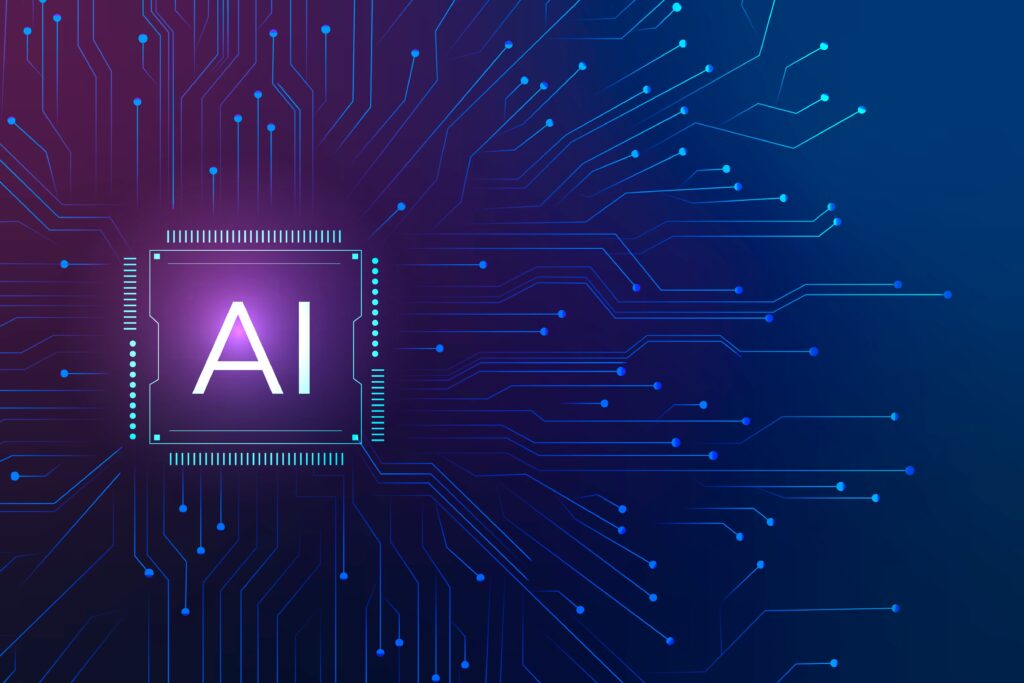The challenge for leaders of companies creating AI services is managing the AI lifecycle, including creating, deploying, and managing services. They want to gain control of their processes and understand them to comply with internal or external policies. AI governance can make a big difference in this situation.
No other field has an ethical compass as relevant as artificial intelligence. General-purpose technologies like these are reshaping how we live, work and interact. The world will change at a rate not seen since the advent of the printing presses six centuries back. AI technology has many benefits, but without ethical guidelines, it could reproduce real-world biases, discrimination and fuel divisions, and threaten fundamental human freedoms.
AI in Business
Consider the learning approach used by modern machine (deep) learning algorithms. The machine learning model creates a black-box system. The model learns and characterizes the relationships between data — the given input data and the corresponding system behaviour. Once trained, the model can approximate the system’s behaviour for any new data inputs.
For example, suppose you train a computer vision model on images of cats with the correctly given image labels. In that case, it will learn to classify new cat images accurately. How can you explain this behaviour? Black-box models are inherently unexplainable.
While AI models can classify data patterns correctly, the process may not be interpretable and understandable. After all, an AI model is, in simple terms, a set of mathematical equations that can approximately represent the relationship or behaviour of any system.
Using artificial intelligence in business is much more complicated than accurately classifying cat images. Suppose you’re relying on black-box outputs and outcomes for your business operations. In that case, you can’t explain, defend or justify those operations.
Another key element of AI ethics and governance goes beyond the technology itself. It is focused on business leaders and the workforce, mainly:
- How they envision the use of AI in solving sensitive business problems.
- How their use of advanced AI technologies can potentially violate the ethical standards that uphold the brand reputation and loyalty toward their organization.
AI ethics and governance must get operationalized for any organization aiming to replace or augment the human workforce in solving complex business problems.
Building a Sustainable, Ethical, Operational AI model
To address these limitations, you can build a sustainable AI ethics program based on these principles.
Measure and Interpret AI transformation
Measure your AI progress. When transitioning to an AI-first approach, quantify the impact. Analyze qualitatively how this transition will impact your compliance with regulatory requirements and ethical responsibility to society.
As you grow your business and your user base and adopt AI tools to perform tasks previously performed by human workers, model and forecast AI progress.
Understanding the Problem of AI Safety
Is it safe for you to replace your current workforce with AI? Take into consideration the compliance regulations. Will you still be able to meet industry compliance standards if no human is involved?
Consider augmenting your human workforce with AI tools. Collect real-world safety metrics data and expand your AI adoption gradually.
Understanding the Ethics of AI
Explore the ethical issues surrounding AI adoption, including:
- Privacy of end-users
- Discrimination
- Consent
- Bias
- Authorship
Define the AI ethics that your organization adheres to. Create a process to specifically check for AI limitations and unexplainable output.
Core Principles of AI Ethics
In the last few years, AI ethics guidelines and principles have proliferated. All public sector agencies, AI vendors and research bodies have their own version. There are four basic principles: accountability, fairness, transparency, and safety.
AI ethics falls under the umbrella of AI governance. The following four principles will explain why.
Fairness ensures that an AI system does not discriminate against any user segment but performs equally well.
Accountability is a term that refers to the identification of who is accountable at each stage of the AI lifecycle and the ensuring of human oversight and control.
When humans can understand, interpret, and explain “why” AI decisions, they will adopt and trust AI. This leads to the success of AI initiatives.
Security ensures that AI systems get protected with adequate controls.
AI ethics principles clarify design, data, documentation and testing requirements. These principles apply to the entire AI lifecycle.
AI ethics can be a valuable tool for an organization to develop its AI strategy. It helps an organization determine the appropriate use of AI, even if a system suits a specific purpose. AI ethics principles clarify the design, data, documents, testing, and monitoring requirements. These principles apply to the entire AI lifecycle.
Prioritizing AI ethics is essential when adopting a broad AI Governance strategy. It’s also important to allocate adequate budget and resources. Most organizations are adept at routines and processes, such as budget allocation, technology procurement, and hiring. However, they have not yet mastered translating AI ethics into actionable items. AI governance is important in ensuring that this occurs.
Expand on existing programs.
Healthcare is an industry that has been a leader in automating sensitive ethical aspects. The industry previously focused on privacy concerns and governing data use. Create an ethical framework to articulate these standards and measure the effectiveness of your quality control and risk mitigation programs.
Customize a governance framework to meet your specific needs.
AI ethics presents different challenges to every organization. Determine the metrics and KPIs relevant to your industry, organization culture and user base. A robust framework clearly outlines how your data pipeline, from data acquisition to integration with third-party AI tools and output produced by AI algorithms, should account for deviations or anomalies that pose an ethical risk.
What are the consequences if AI governance is not adopted?
A company’s failure to adopt AI governance can have many negative effects, including a loss of efficiency. Machine learning is an iterative process that requires collaboration. Without good governance, data scientists and validators cannot know the data source or how a model gets constructed. Reproducing results can be difficult. Administrators could lose months of work if they train a model with incorrect or incomplete data.
A lack of AI governance may also lead to significant penalties. Bank operators were fined seven figures for using biased models to determine loan eligibility. The EU plans to add AI rules to the General Data Protection Regulation.
Brand reputation can also be at risk. You can use AI software to study teenagers’ social media speech patterns in one experiment. After internet trolls “taught” the software to create racist and anti-Semitic comments, administrative officials quickly removed it.
Final Thoughts
The need for AI Governance is similar to software development governance from a few decades back. AI governance should include checkpoints throughout the AI lifecycle, with accountability for each. Retailers using AI to forecast demand or recommend products must ensure their models aren’t drifting. Leaders of healthcare organizations using AI to find patterns in medical research must debiase their models so that the data fed accurately represents features like gender, race and zip code.



